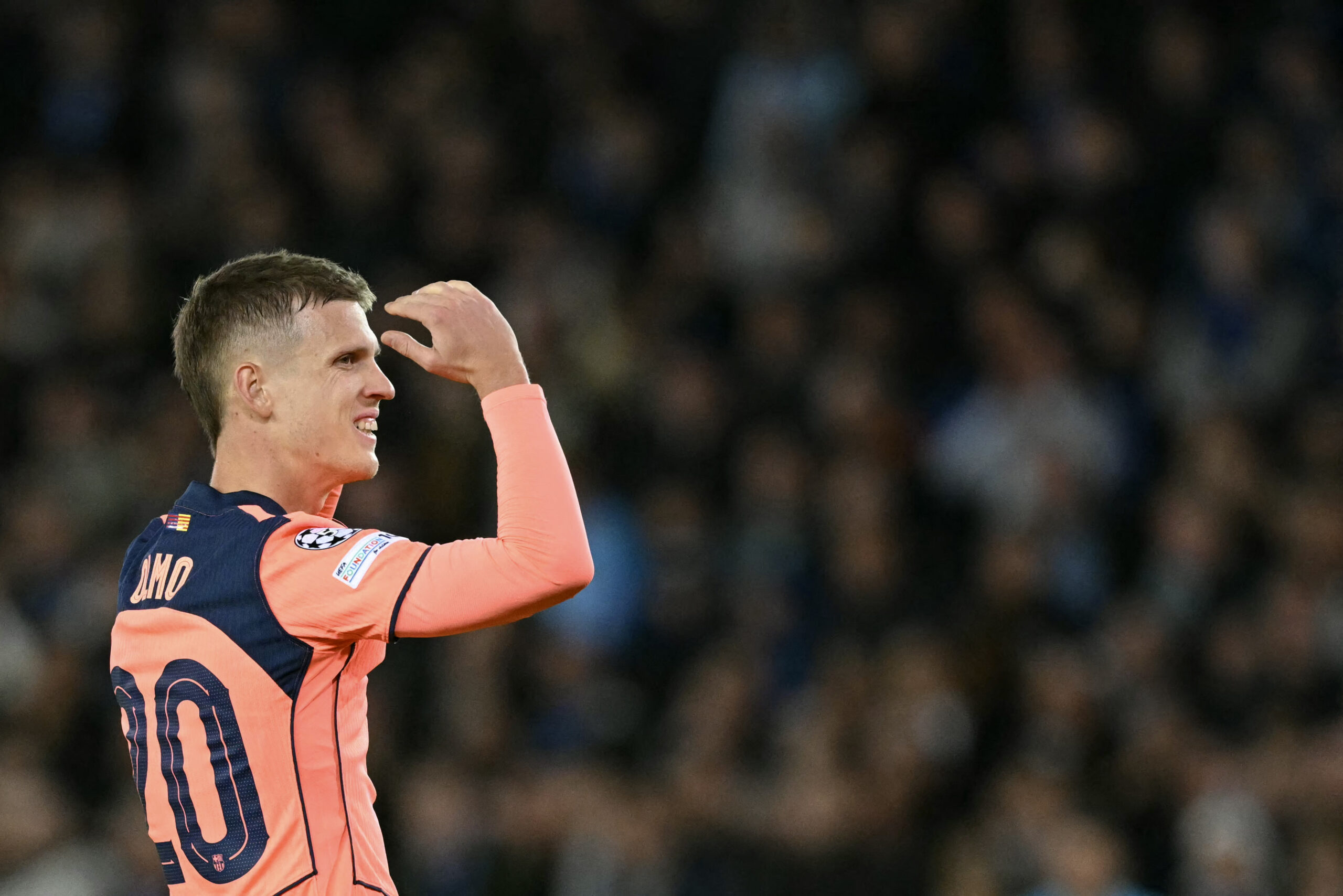Barça’s Struggles in Bruges: A Godless Team Dancing on the Precipice of Chaos and Division
As the sun rises over Europe, the soccer world is abuzz with the latest developments surrounding FC Barcelona, a club that finds itself at a critical juncture in its storied history. The team’s performance in Bruges during the Champions League has not only dominated the headlines in Spain but has also reignited the firestorm of debate surrounding the future of the Catalan giants. As the dust settles from their narrow escape, the echoes of past glories clash with the harsh realities of modern football, creating a narrative ripe for analysis.
The Champions League is not merely a tournament; it is the holy grail for clubs across the continent. This season, Barcelona entered the competition with the weight of expectations on their shoulders. The illustrious history of the club demands nothing less than success at the highest level, yet recent performances have raised questions about their current capabilities and long-term vision. The match in Bruges has amplified these concerns, showcasing that perhaps the footballing gods are not smiling upon Barca as they once did.
Reports from various Spanish newspapers highlight a night that was fraught with tension and uncertainty. While Barcelona managed to avoid disaster, the performance in Belgium was far from convincing. A club that once epitomized attacking football and success is now grappling with inconsistencies that mirror the struggles of other European heavyweights. Benfica’s failure at home and Olympique Marseille’s dramatic setbacks contrast sharply with the joy experienced by Inter Milan at the San Siro, showcasing the unpredictable nature of modern football.
The footballing landscape is littered with examples of clubs that have faced similar crossroads. Barcelona’s struggles can be compared to the challenges faced by other giants, such as AC Milan or Manchester United, who find themselves navigating a post-legend era. These clubs, once teeming with talent and glory, are now desperately seeking the formula to return to their former heights. Barcelona’s management must confront the reality that the foundations built upon the legacy of Lionel Messi and others cannot solely be relied upon for future success.
In analyzing the performance in Bruges, one must consider the tactical decisions made by the coaching staff. The choices of formation, player selection, and in-game adjustments are critical elements that can dictate the outcome of high-stakes matches. When Barcelona took the field against Club Brugge, it was evident that the weight of expectation weighed heavily on the team. The players, many of whom are young and still finding their footing in the world of elite football, may have felt the pressure to deliver in a high-profile encounter.
More fundamentally, the struggles of Barcelona tap into broader themes within the sport. The dichotomy of success and failure is a constant that resonates with fans and analysts alike. Every decision made by management reverberates through the club and its supporters, creating an atmosphere charged with hope and despair. Critics of the current regime argue that the club is at a crossroads, urging for a reevaluation of its strategies and philosophies. The question of identity looms large—what does it mean to be Barcelona in a world where the rules of football are continually evolving?
The media frenzy that surrounds Barcelona’s Champions League matches emphasizes the societal connection between football and its followers. The narratives crafted by journalists shape the perceptions of the fans and influence the discourse surrounding the club. Each headline, each analysis, serves to solidify or undermine the legacy of a team famed for its style and finesse. As fans flock to newsstands, the headlines serve not only as updates on performance but also as reflections of their hopes and fears for the future.
The contrasting fortunes of teams across Europe only deepen the narrative surrounding Barcelona’s struggles. Clubs like Bayern Munich and Manchester City have embraced modern tactics and player development, resulting in consistent performances that have secured their dominance in domestic and international competitions. Conversely, Barcelona’s inability to capitalise on emerging talents and adapt to changing footballing dynamics raises questions about the club’s readiness to reclaim its position among the elite.
Moreover, the financial realities facing FC Barcelona have played a significant role in its competitive standing. Following a lengthy period of excessive spending and mismanagement, the club finds itself grappling with significant financial constraints that hinder its ability to attract top-tier talents. The departure of star players and the inability to secure lucrative sponsorship deals further complicate the situation. As a result, the team is forced to rely on a mix of seasoned professionals and promising youngsters, creating an environment laden with uncertainty.
Furthermore, the atmosphere in the dressing room is crucial to a team’s success. As reports indicate, internal dynamics can greatly influence individual performances on the pitch. The psychological impact of high expectations can manifest in various ways, and the weight of history may affect the confidence of players. An environment where players perform under constant scrutiny can either forge resilience or lead to a crisis of confidence. Barcelona’s current squad must navigate these challenges while striving to meet the lofty standards set by their predecessors.
Ultimately, the clash of traditional values and modern realities in football reflects broader societal themes. The tension between nostalgia for bygone eras and the pressures of present-day competition resonates not only within the realm of sports but also across various aspects of life. Just as societies grapple with change and adaptation, so too do football clubs like Barcelona face the daunting task of evolving while staying true to their identity.
As the Champions League continues to unfold, one thing seems certain: FC Barcelona remains a club at a crossroads, caught between its glorious past and an uncertain future. The scars of recent performances will linger, and until the team can reclaim its place among the elite, the questions surrounding its prowess will echo through the corridors of Camp Nou and beyond. The world watches, and the discourse rages on, reflecting the complexities and contradictions that define both football and society itself.
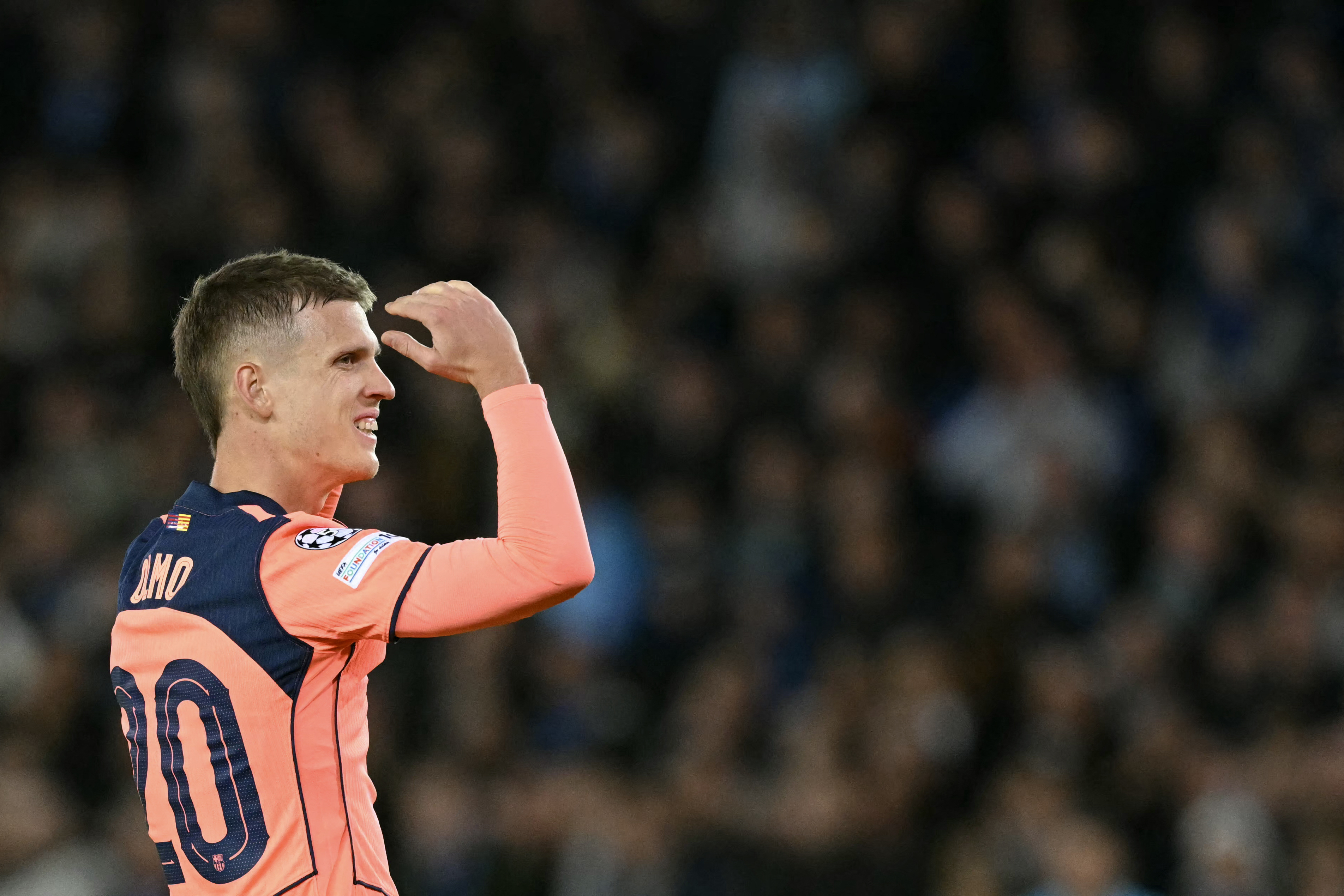
The Champions night is the theme to highlight on Thursday morning at the newsstands. The performance of Barcelona in Bruges is the topic of the day for newspapers in Spain.
A night that doesn’t overshadow other performances and European setbacks, such as Benfica at home or Olympique Marseille at the Velodrome. Results that contrast with the joy experienced at San Siro with Inter.
Nothing better than a stroll through the newsstand to start the day.
MARCA
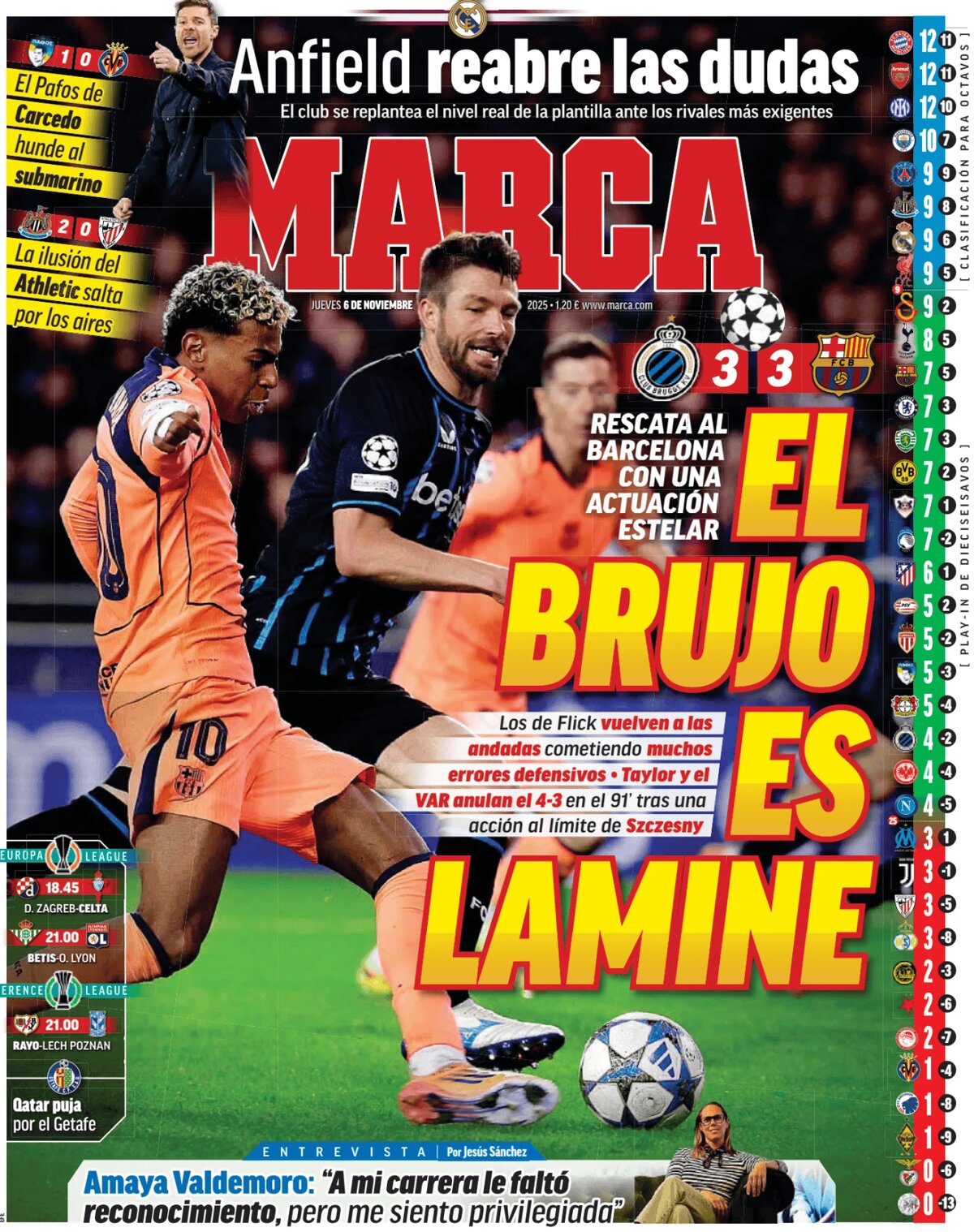
AS
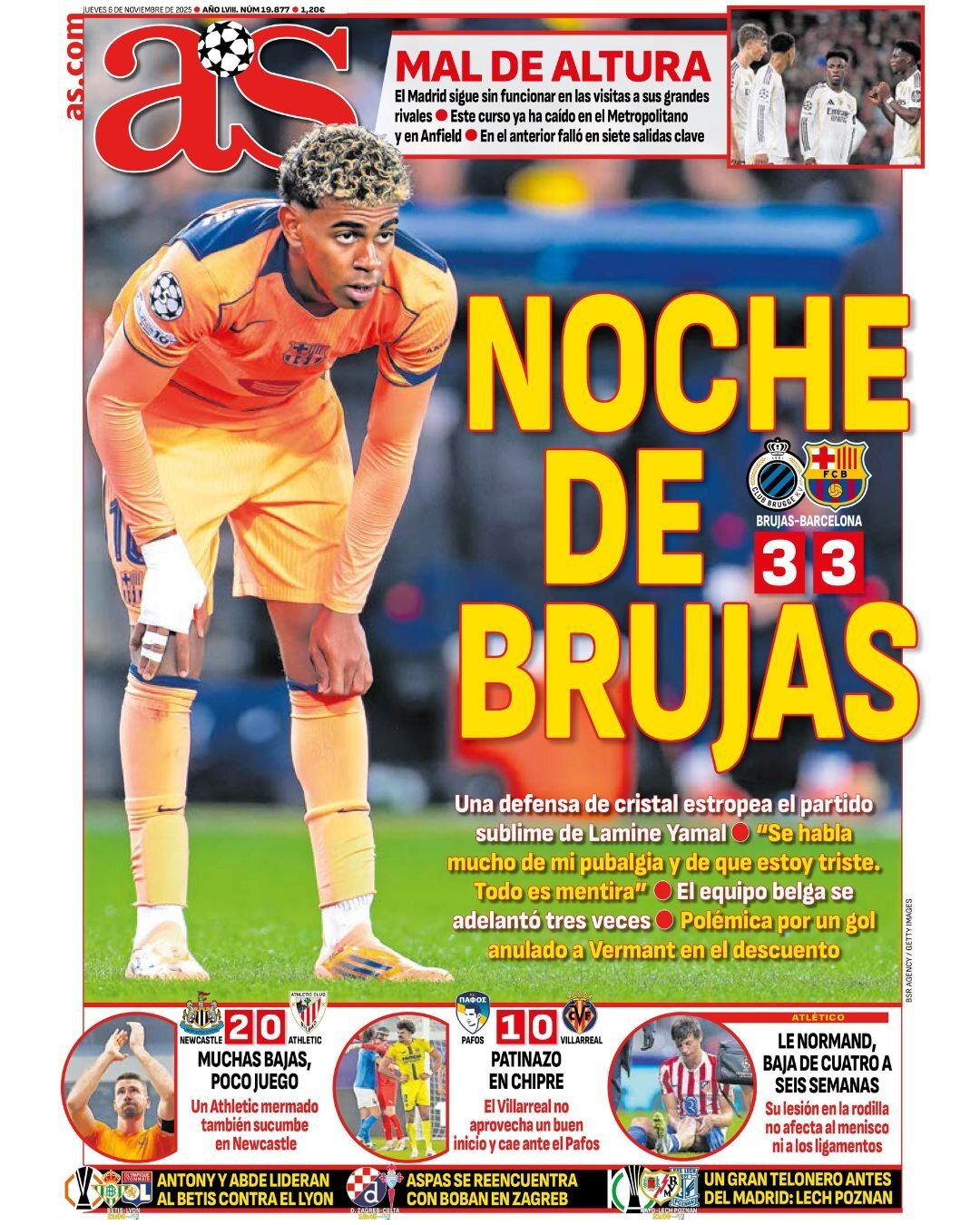
MUNDO DEPORTIVO
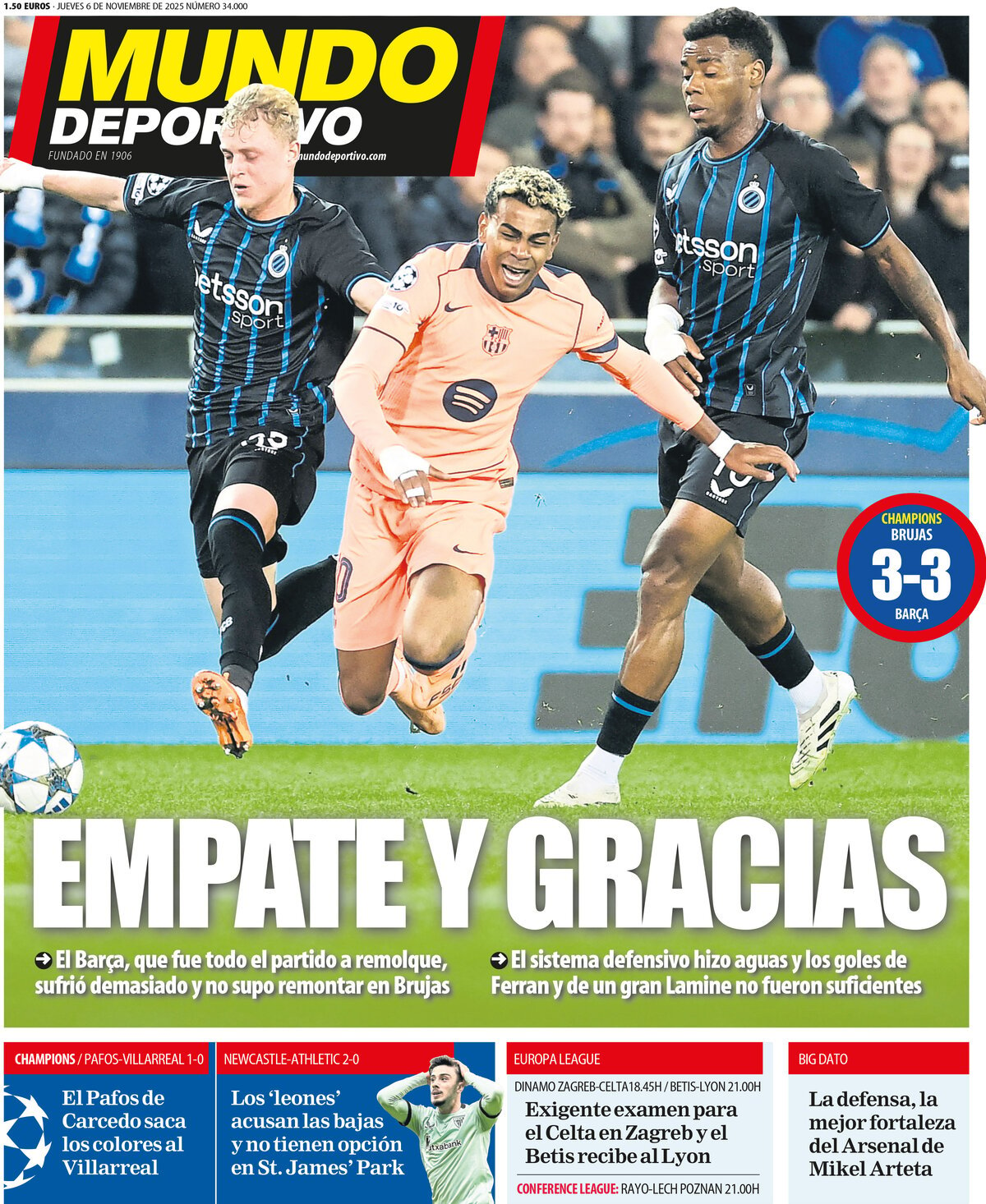
SPORT
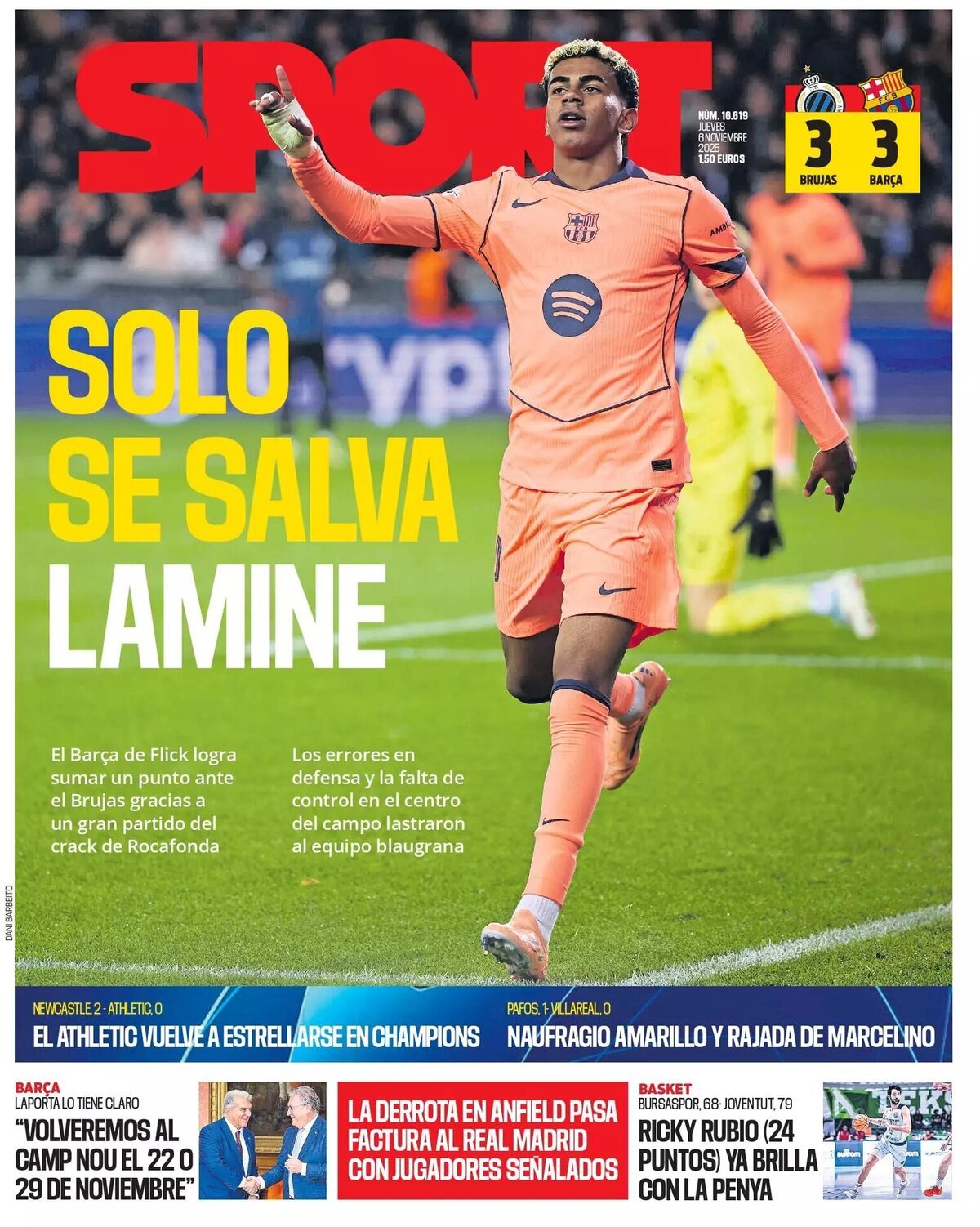
SUPERDEPORTE
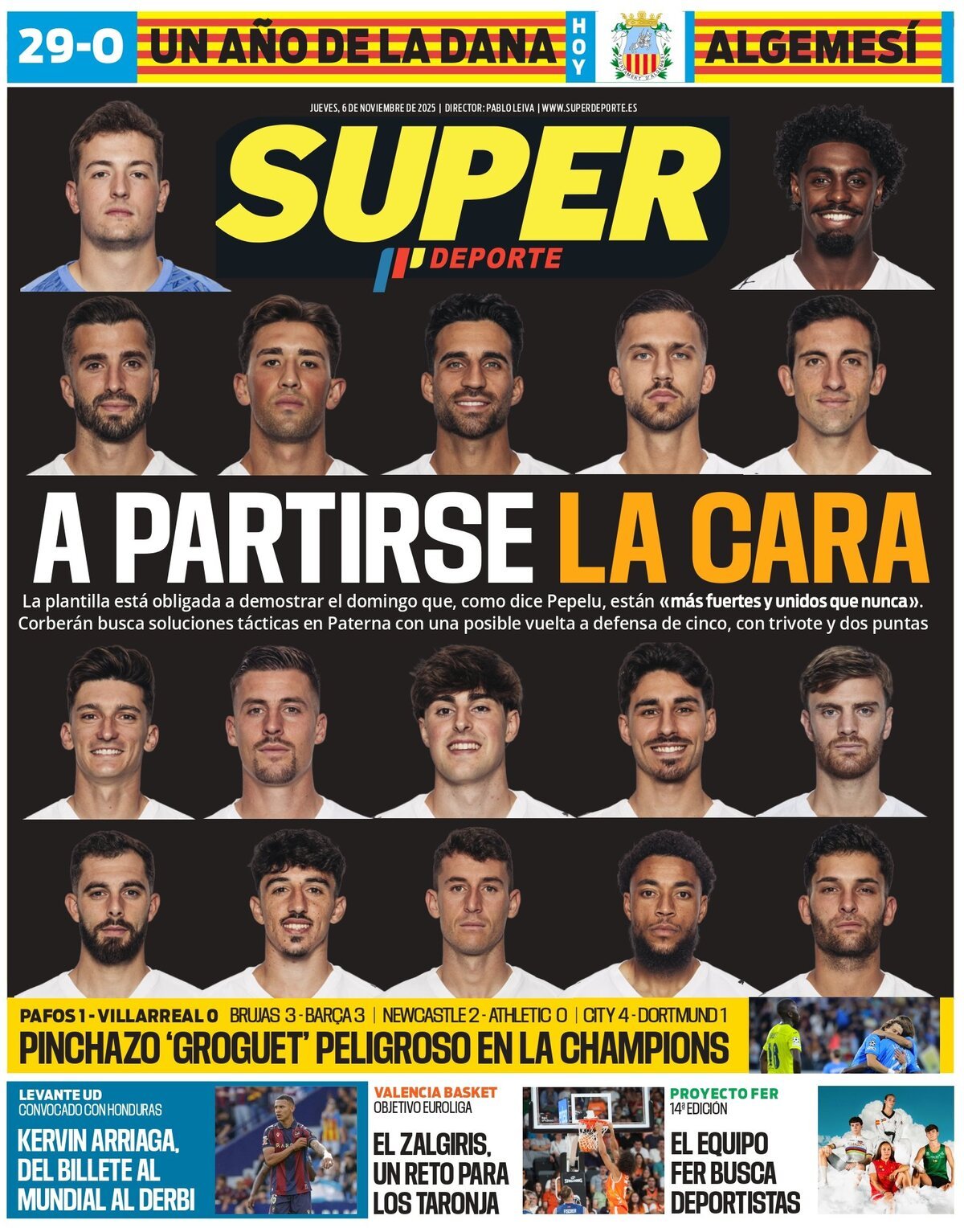
L’EQUIPE
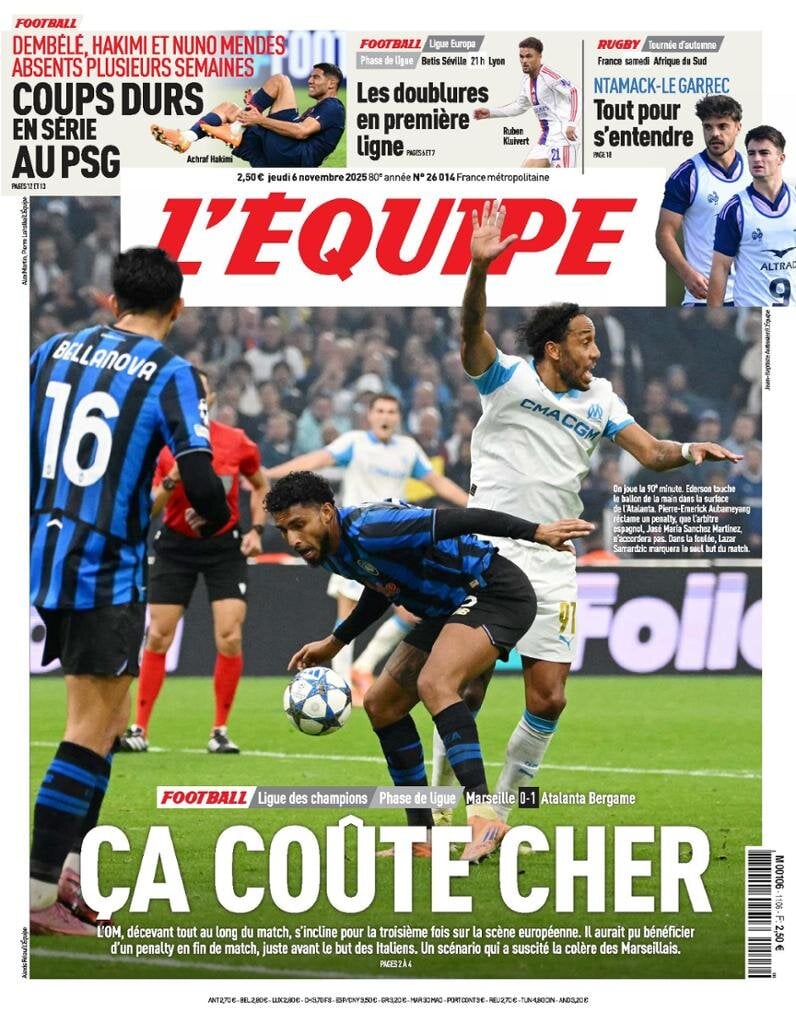
LA GAZZETTA DELLO SPORT
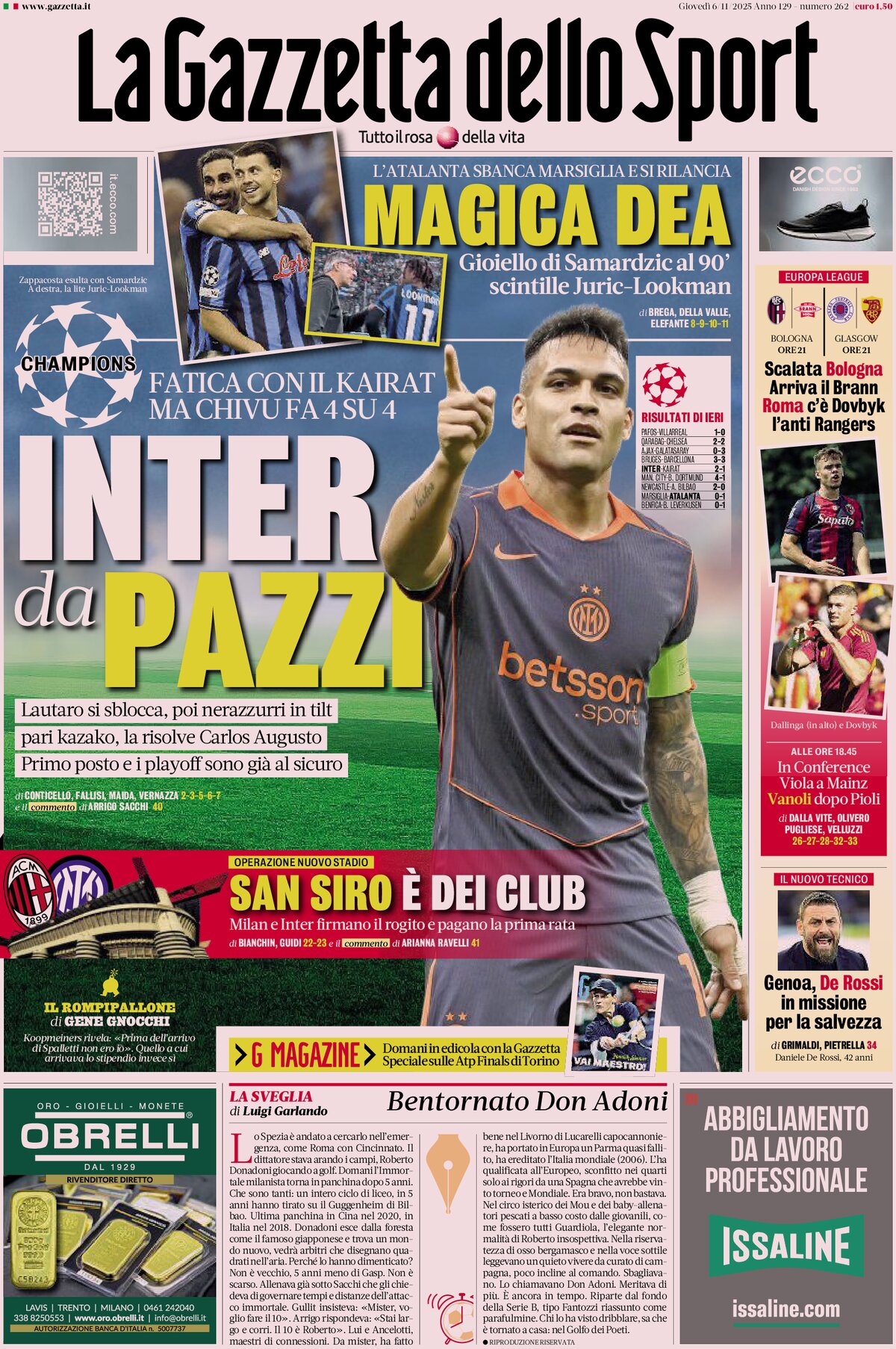
CORRIERE DELLO SPORT
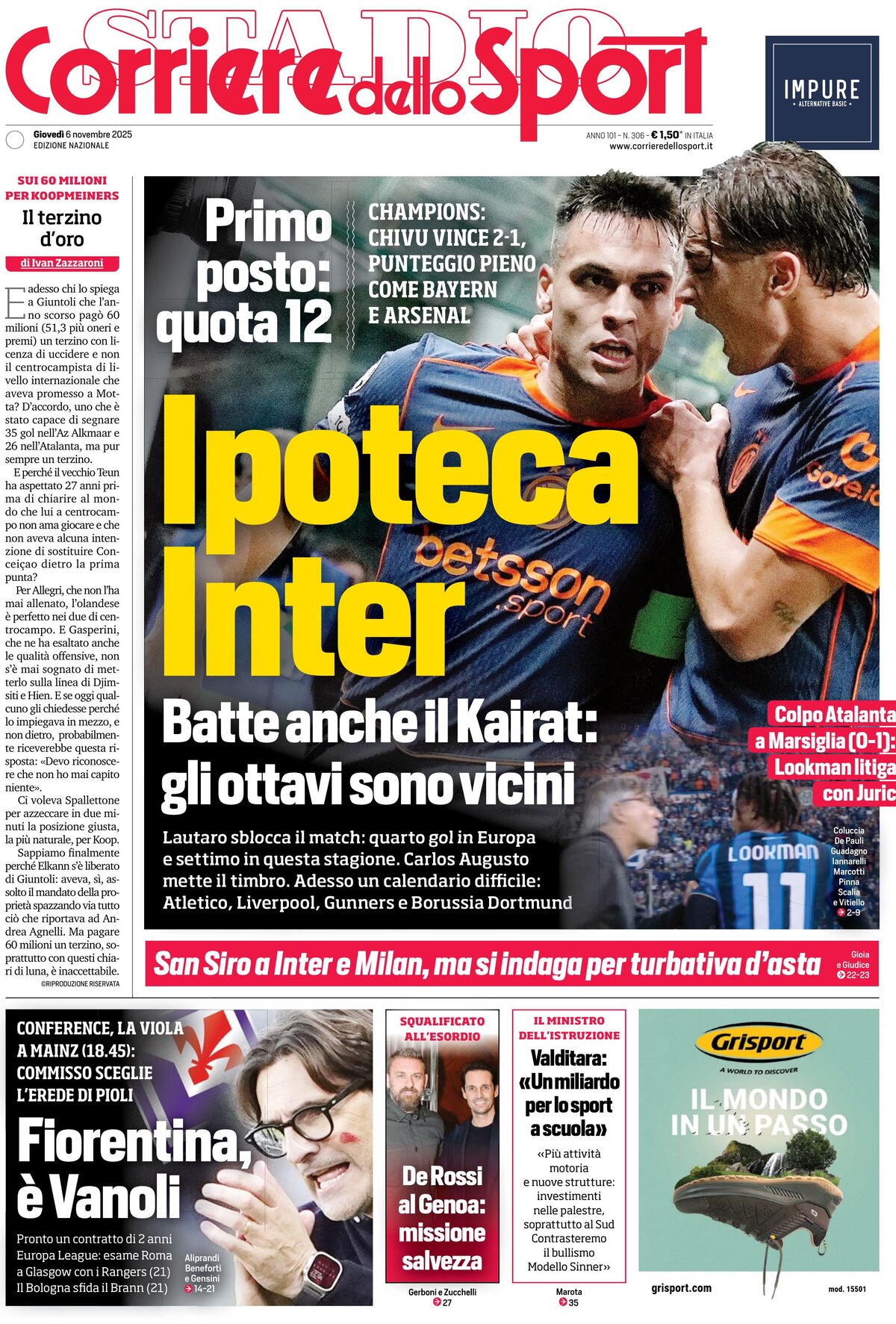
A BOLA
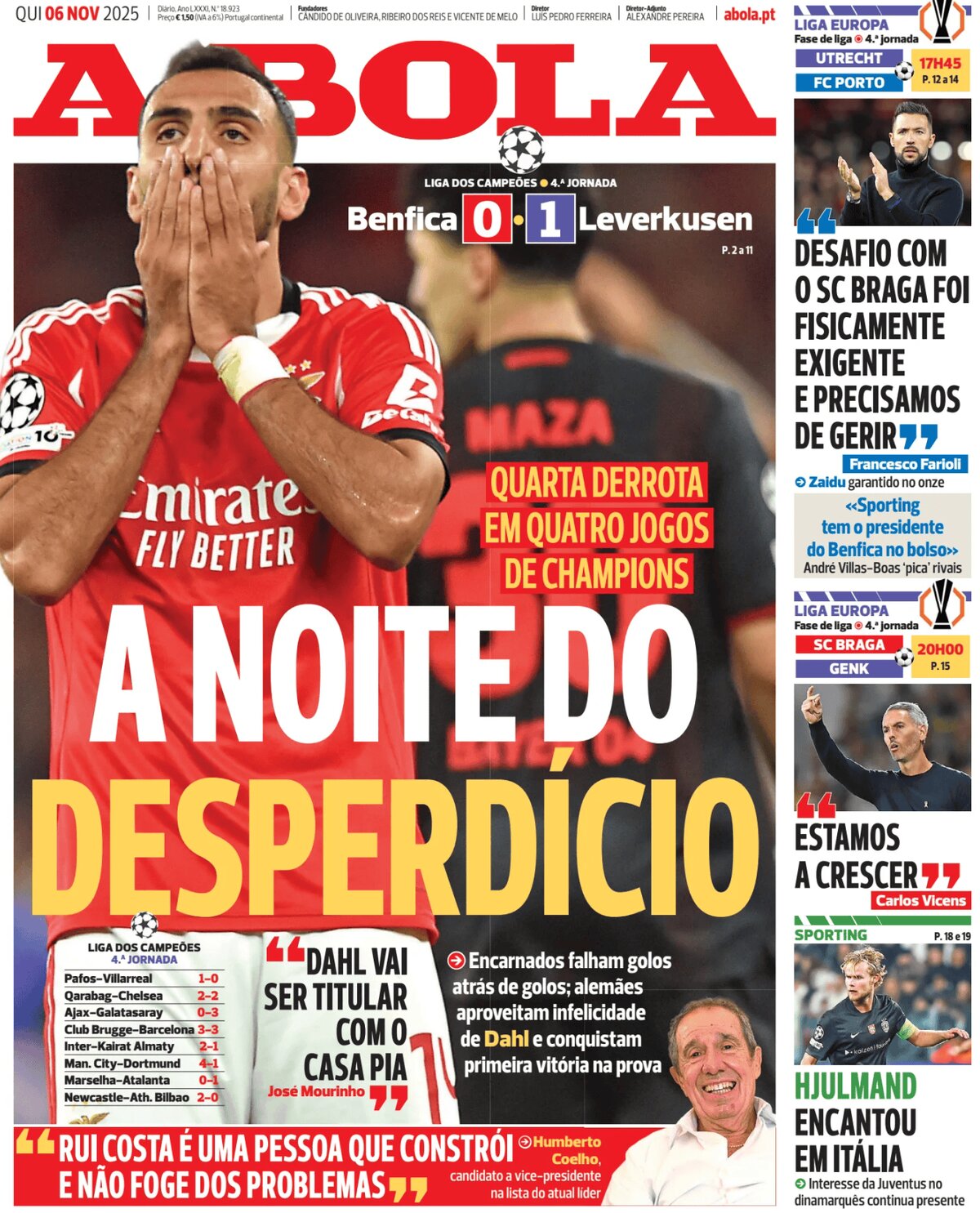
KICKER
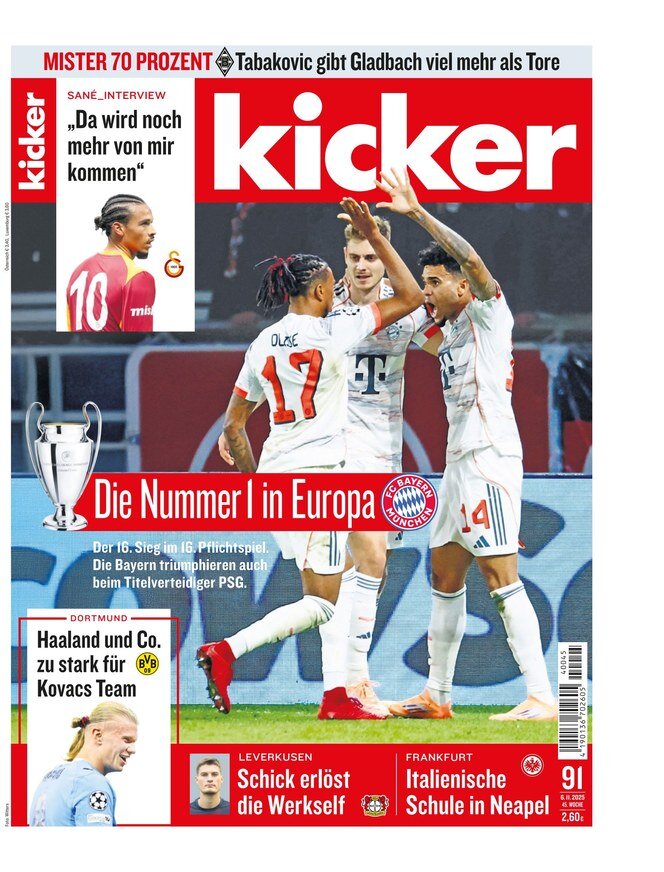
AD SPORTWERELD
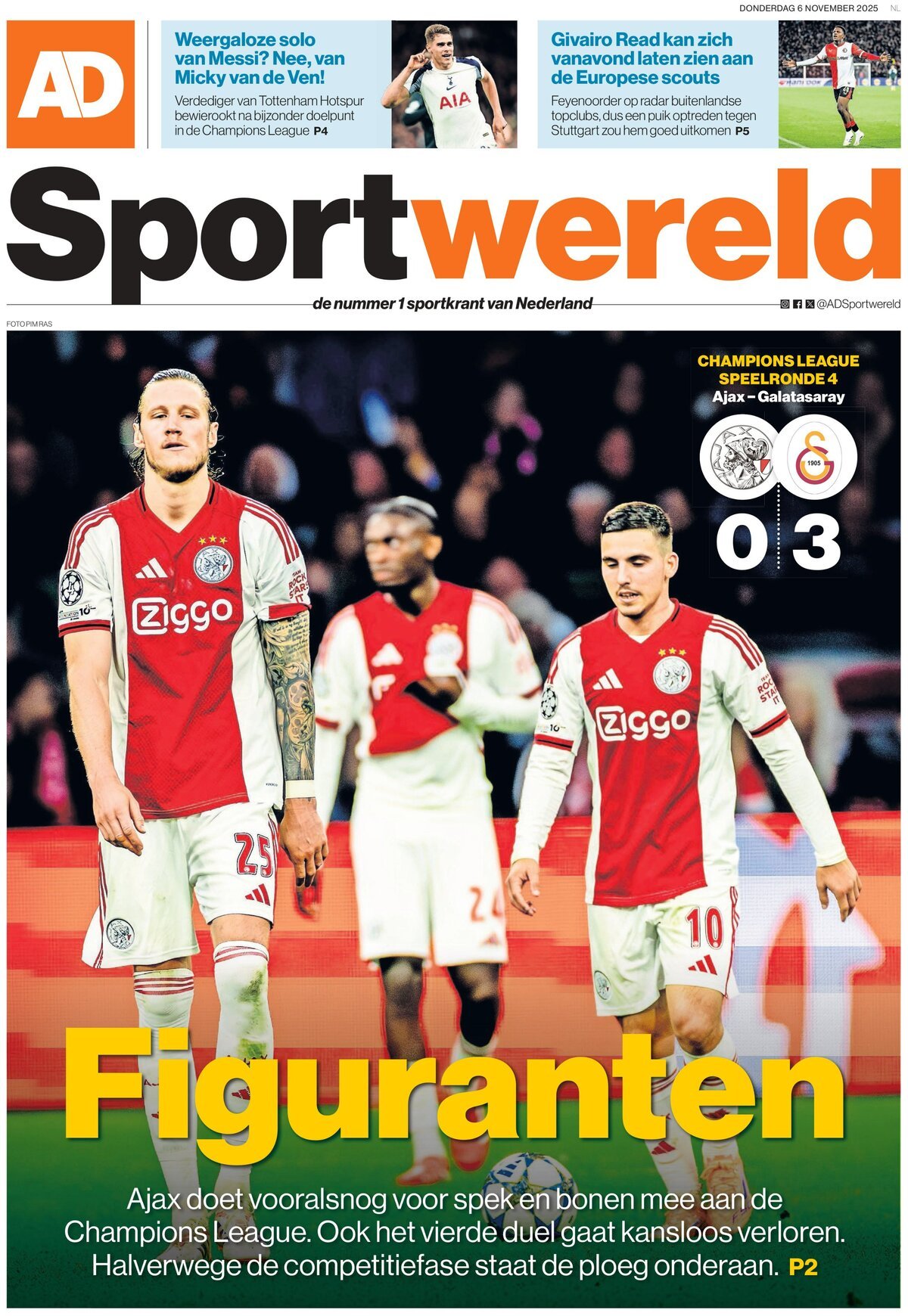
This article was translated into English by Artificial Intelligence. You can read the original version in 🇪🇸 here.
📸 NICOLAS TUCAT – AFP or licensors

